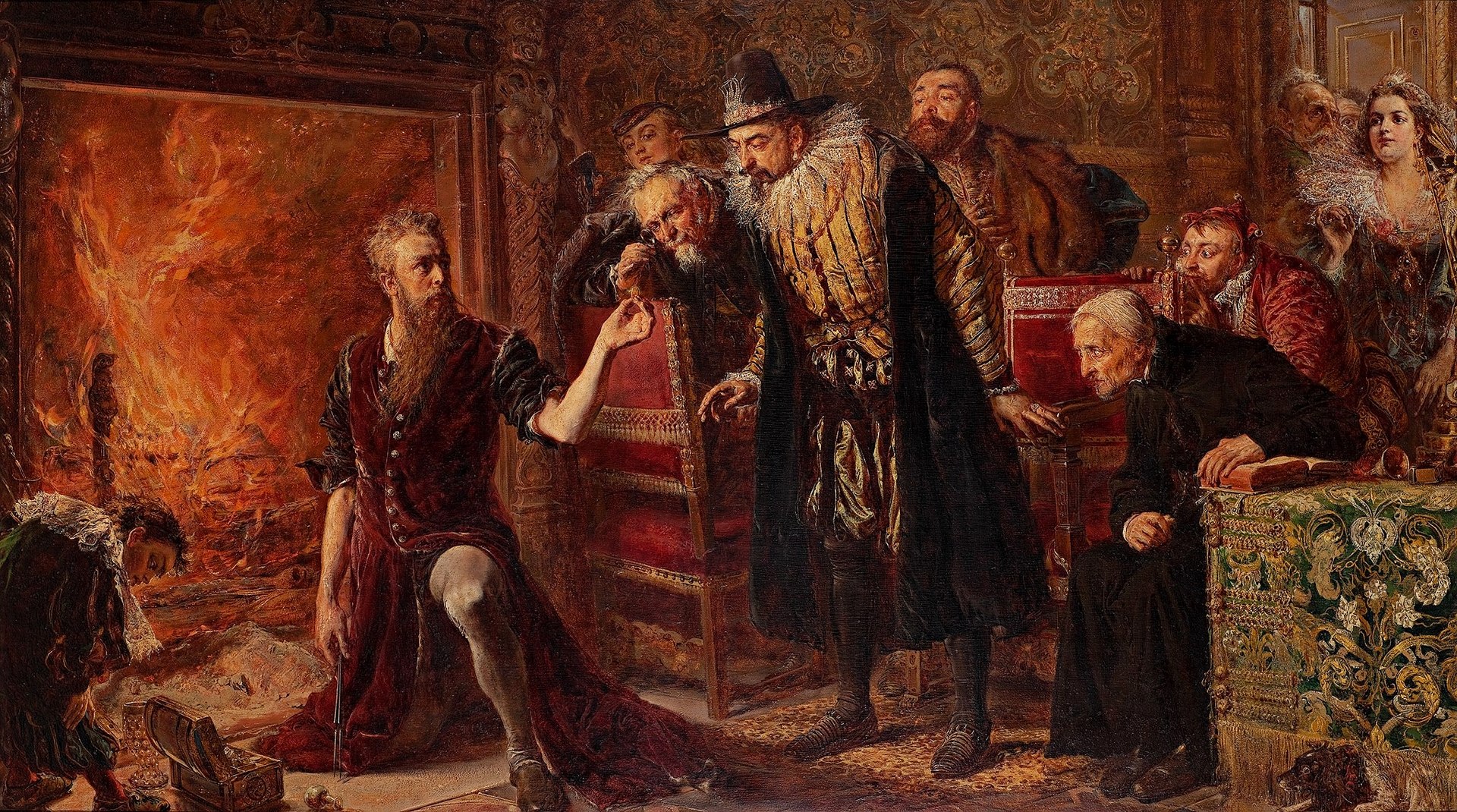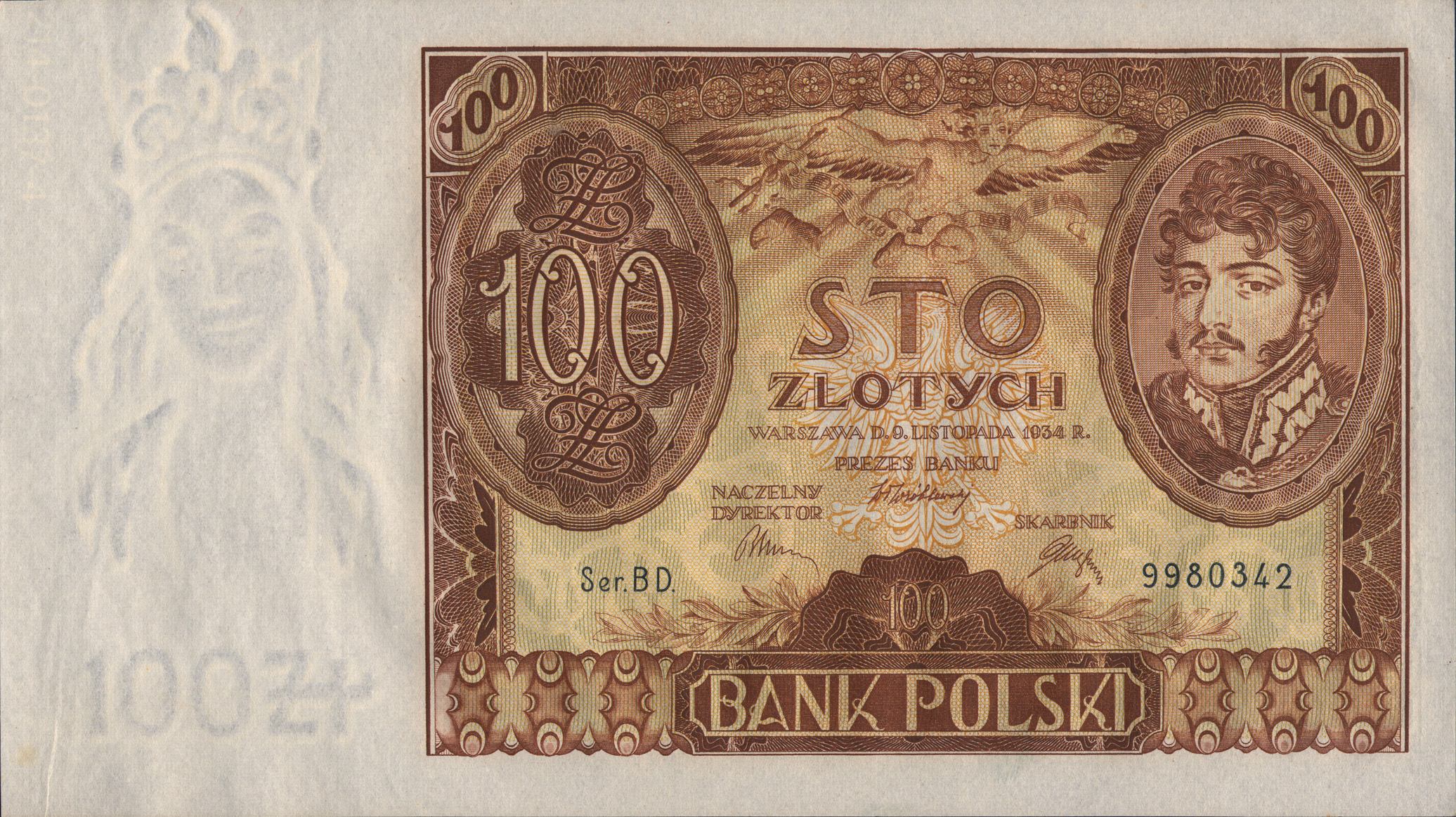The history of Polish transformation and the first years of the Third Republic of Poland never ceases to attract the attention of academics. Paweł Kowal, a well-known expert, researcher and politician (currently a member of the Sejm and earlier, among other positions, the Deputy Minister of Foreign Affairs) has also turned his attention to the breakthrough period. The result of his research focuses on the theme of Polish Eastern policy in the book Testament Prometeusza: źródła polityki wschodniej III Rzeczypospolitej (The Testament of Prometheus: Sources of Eastern Policy of the Third Polish Republic) issued in 2018.
by Andrzej Turkowski
The book was favorably received by academics from the university milieu, through to experts on Eastern policy and also by a wider audience. Even more so, reading the Testament of Prometheus contributes greatly to further reflection on the challenges of studying the Polish elite and the history of modern Poland. Although they relate directly to Polish phenomena, they have a more universal character, reflecting the specific character of Central and Eastern Europe.
Prometheism and realism – two traditions of Polish thinking about the East
The mythological Prometheus symbolizes one of the two main traditions in Polish thinking about Eastern Europe. Its roots date back to at least 18th century, when the elite of the defeated First Republic tried to understand the reasons for the partition of their country between three neighboring powers, while at the same time considering ways to regain independence.
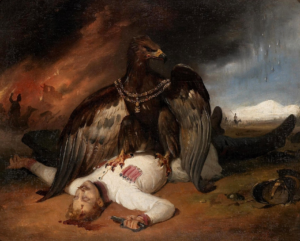
At the center of the post-partition reflection was the question of the desired model of relations with the imperial authorities in St. Petersburg (and later in Moscow). On the one hand, there were ideas of continuing the fight against Russian imperialism. This current includes the “Promethean” concept. Its supporters – politicians, officials and theoreticians operating before the First World War and during the Second Polish Republic, pointed to the need to build an alliance of constituent nations of the Russian Empire (also in its “Bolshevik form”). The alliance’s goal was to break the empire “along national stitches.” The term was coined by Józef Piłsudski, considered one of the main “fathers of independence” and promoters of the “Promethean” concept. In his assumptions, Poland was the leader of the alliance, carrying freedom to enslaved nations, as Prometheus did fire.
On the other hand, alternative concepts, called “realistic” for their recognition of Russia’s dominant role in Eastern Europe and forging close relations with it, especially in the face of the threat from Germany – a state considered by “realists” as the main threat to the Polish nation. In the interwar period, the most famous propagator of ideas in this direction was Roman Dmowski – the ideologist of modern Polish nationalism and Piłsudski’s main political rival.
The fate of the “Promethean” tradition after Poland regained independence in 1989 is the most important narrative axis of Kowal’s book. He argues that in the first years of the Third Republic of Poland, the (neo)Promethean doctrine gained a dominant position as the basis of the Eastern policy of the Polish state. A breakthrough in this respect occurred when the Polish authorities, the first in the world, recognized the independence of Ukraine – in December 1991.
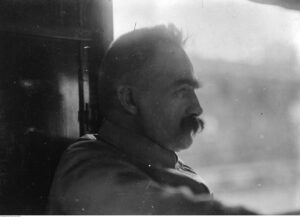
Kowal attempts to reconstruct the main reasons for the victory of (neo) Prometheism. In this context, he indicates three pillars on which the success of this idea was to be based. The first of these was the milieu of the emigrant monthly “Kultura” published in Paris, headed by an influential editor-in-chief Jerzy Giedroyc. After the Second World War, it was the main center of reflection on the theoretical assumptions of Eastern policy, in line with the Promethean tradition. The other two pillars are the policy of the United States and, more broadly, the policy of the West towards Eastern Europe during the turn of 1989, and the Vatican’s Eastern policy, as shaped by Pope John Paul II.
Kowal’s book is extensive, erudite and based on a wide source database. At this point, however, I would like to critically refer to the main thesis of the Testament of Prometheus – regarding the groundbreaking significance of Poland’s recognition of Ukraine’s independence. While trying to understand where Kowal’s thesis comes from, at the same time I would also like to present a few critical reflections on the fairly common attitude of Polish researchers on recent Polish history – Kowal, as I will show, is among them.
Poland recognizes Ukraine’s independence: myth and reality
As Paweł Kowal argues, recognition of the independence of Ukraine by the Polish government – the first in the world – signaled the final triumph of “Promethean” ideas in Polish Eastern policy. Thus, Kowal gives this decision great political weight. It seems, however, that although this act did indeed carry some significance for Polish foreign policy, it was primarily a symbolic one. In particular, it was one of the few manifestations of the influence of supporters of the (neo) Promethean option on the activities of the Polish state at that time.
See also: Russian politics of memory towards Poland
The starting point for a more accurate and alternative presentation of the importance of this event consisted in including the Eastern policy in the broader set of priorities of the Polish elite in the early 1990s. The key idea at the time was a broad consensus on the need for Poland’s integration with the West as soon as possible, symbolized by the slogan ‘return to Europe’. For foreign policy, this meant subordinating Eastern policy to the Western vector. “In fact, the so-called Eastern policy is an important element of our European orientation” – said Krzysztof Skubiszewski, the longtime head of Polish diplomacy at that time. Even more emphatically this conviction was expressed in the weekly “Tygodnik Powszechny”, by influential intellectual Stanisław Stomma: “Looking to the West, we must take into account the decisions of the countries which take them. In foreign policy, the time of pirate independence has ended. […] So we must get rid of the illusions of making policies in Eastern Europe on our own.”
The subordinate character of Eastern policy influenced the position of widely understood Eastern experts (some of whom were at the same time active politics). On the one hand, they were influential, and supported by the authorities of the Polish intelligentsia, so that they could effectively shape public debate within Poland. On the other hand, their impact on state policy and the international milieu was limited, which was caused by many factors. The shape of the round-table agreement played a role here. It allowed preservation of the important positions of some of the post-communist elites (closer to the “realistic” tradition). The already mentioned priority of integration with the West (whose leaders at that time supported Gorbachev’s efforts to maintain the unity of the USSR), as well as the weakness of the state and its disastrous economic situation – could be pointed as another factors hampering realization of the ‘Promethan’ ideas.
It is only with the “Prometheists’” limited influence on Poland’s foreign policy and the frequently unfavorable international condition they found themselves in, that one can see the real significance of their undoubted, yet symbolic success. Such was the immediate Polish recognition of Ukraine’s independence.

In December 1991, a group of Polish intellectuals, without much experience in governing the state, operating in extremely difficult internal and external circumstances, were able to risk raising tensions in relations with the great powers for the sake of Polish-Ukrainian relations. The mythologization of the significance of this event was immediate. As early as 1992, Adam Michnik wrote: “as the first in the world, the Polish government (…) recognized an independent Ukrainian state. It was one of those acts of sovereign Poland that have the dimension of a symbol. This was a gesture of pride, courage and imagination.” It is not surprising then that many people feel proud of this success and that it still serves as a founding myth for the Eastern milieu. Paweł Kowal’s book is another example of this.
Return of “realism”
As Kowal argues, recognition of independence was the final triumph of (neo) Prometheism in Polish foreign policy against “realistic” concepts. In fact, however, fluctuations in Eastern policy lasted for many years. Immediately after the recognition of Ukraine’s independence, the next steps of the Polish authorities in the East were directed in the opposite direction: President Wałęsa assured Gorbachev of support for his efforts to maintain the unity of the USSR, and the government abstained from sending an ambassador to Kiev.
A few years later some members of the government formed by post-communist parties, the Democratic Left Alliance and the Polish People’s Party (1993-1997) went even further towards the “realistic” pole wishing to rebuild close economic relations with Russia. It is worth mentioning that at that time Andrzej Drawicz, who was propagating closer relations with Russia, was the Eastern Policy adviser to Prime Minister Józef Oleksy. Therefore, fluctuations between the “Promethean” and “realistic” options continued at least a few years after Ukraine regained independence. The key moment of weakening the “realistic” option seems to have taken place only in 1995 when Aleksander Kwaśniewski became president of Poland, he came from the post-communist background and had clearly cut himself off from the “realistic” tradition.
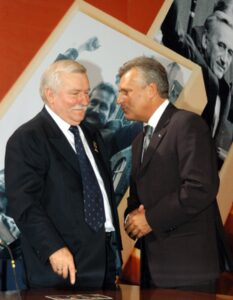
Two approaches to research
For those interested not only in the shaping of Polish Eastern policy, but also in recent Polish history in general, it is worth presenting broader conclusions from the critical reading of the Testament of Prometheus. There might be a relatively common attitude among Polish researchers that shows a slightly distorted picture of historical events, such as giving too much significance to recognition of Ukraine’s independence as described above.
One characteristic of such an approach is direct involvement in historical events under a researchers’ scrutiny, which results in a greater focus on what “should have happened” rather than on analyzing what “really did happen”. Secondly, there is a tendency to make common-sense explanations of social life mechanisms, including, for example, treating “ideas” as factors that directly shape reality. Thirdly, one can observe among researchers a tendency to repeat social mythology, especially when it is within their worldview.
In contrast, an ideal attitude tends to maintain a distance while conducting research, focusing on analysis rather than normative assessment. In order to achieve it, a relational approach to the social world is necessary, which takes into account the broader, structural context of the studied phenomena. Instead of reproducing social mythology, one strives to deconstruct it and explain it in a spirit of critical approach.
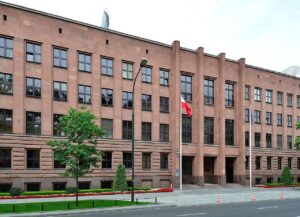
Researcher and politician in one person
To illustrate the first of these characteristics in the book, it is worth analyzing the eloquent acknowledgment page in the Testament of Prometheus. Kowal writes in it: “This book is also an expression of respect for their work [diplomats, especially those working in the East – AT] – observed in a period that the book does not cover.” Considering that Kowal was the Deputy Minister of Foreign Affairs, it may be suspected that he refers to his colleagues when he was involved in establishing Poland’s foreign policy. Kowal’s strong position as an expert in politics can also be seen in his ability to gain access to the archives of the Ministry of Foreign Affairs (thanks to the consent of the then head of the ministry – Grzegorz Schetyna) or to private archives of people involved in shaping Polish Eastern policy.
Kowal can also be described, with reference to the sociological theory of Pierre Bourdieu, as occupying a “dependent” position in a certain social “universe”. “Dependence” in this case means the existence of an intense relationship with people from the worlds of politics, think tanks and media, which allows access to resources, often unattainable for the “ordinary” researcher (as the archives mentioned above). At the same time, it results in (not necessarily conscious) strong bonds of loyalty to the mentioned actors. This may affect the researcher’s objectivity, including his reluctance to make critical or controversial theses.
The same research problem may be undertaken by a researcher located closer to the opposite, “autonomous” pole of the academy (due to his isolation away from the so-called social “universe”, often compared to the ivory tower). In this case, the pressure from other social fields, including the world of politics or media, is not that high, which of course makes it easier to maintain distance and objectivity towards the social reality in question. At the same time, the researcher must make much greater efforts to get “behind the scenes” of the research. If he is not successful, his work won’t make us understand the real world (in colloquial language such a work is referred to as “too theoretical”), thus it will be mainly based on other books, commonly known documents, etc.
See also: The roads to (an independent) Belarus
***
One of the important issues raised in Kowal’s book is the impact of US policy on the Eastern policy of the Third Polish Republic. As I mentioned, according to Kowal, Washington’s policy was to constitute a pillar supporting the gradual triumph of (neo) Promethean ideas after 1989. However, Kowal himself gives several examples that contradict this thesis. For example, analyzing Poland’s attitude towards the declaration of independence of Lithuania, he indicates US policy as a factor that influenced postponing the decision to recognize the declaration of independence (which was controversial for “prometheists” and supported by “realists”). While the authorities of the USSR were absolutely against it. There are more examples of Washington supporting decisions or actions that were contrary to “Promethean” ideals. Perhaps the most famous of them was the so-called Chicken Kiev Speech by President George H. Bush, when the American leader dampened the aspirations of Ukrainians for independence.
The signaled ambiguity of the influence of American policy on the implementation of the (neo) Promethean doctrine of the monthly “Kultura”, however, is not reflected in the narrative of Kowal. Let me make a hypothesis that this can be explained by Kowal’s proximity to the world of politics in which the Polish-American political and military partnership occupies an indisputable position. In this situation, showing the ambiguous role of Washington can be treated (not necessarily consciously) as politically harmful.
Reproduction or deconstruction of myths?
Another feature of the research approach, which is exemplified by the Testament of Prometheus, is the tendency to adopt a common sense approach (in social science called “substantialism”). This attitude is related to, among others the perception of the studied phenomena (people, institutions or social groups) in isolation from social relations or to attributing the characteristics of people to them. An example of such an approach is granting agency or will to ideas. Here is a quote from Kowal’s work on the meaning of “Promethean ideas” illustrating this approach: “I showed in my work how strong and lasting an idea can be in shaping state policy, no less significant than the calculations based on realistic, ‘pragmatic’ but temporary calculations” (p. 679).
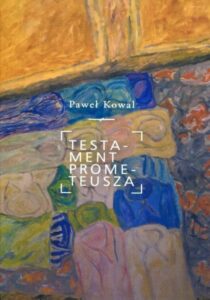
Title: Testament Prometeusza [Testament of Prometheus],
Publisher: Kolegium Europy Wschodniej, 2020
As I tried to show above, without taking into account Eastern policy in the broader context of the Polish diplomacy and its most important goals, it is impossible to fully understand the significance of the symbolic gesture of recognizing Ukraine’s independence by Poland which was the first state in the world to do it.
Finally, I would like to point out that criticism of the research approach does not mean that it has no advantages. I should highlight Kowal’s ability to include documents and information previously unavailable to researchers, to enrich public discussion by raising topics important for intellectual elites and reaching people from other layers of the society, and finally sharing his own experience gained in the broadly understood political activity.
However, it is worth being aware of the specifics of this type of scientific activity. Thus it will be possible to face the challenges facing everyone who would like to fully understand Polish or Central European recent history.
The essay is based on the text of the article “Nauka w służbie polityki wschodniej” (“Science in the service of Eastern policy”), “Res Publica Nowa”, No. 232.
Author: Andrzej Turkowski
Translation: Alicja Rose & Jessica Sirotin


